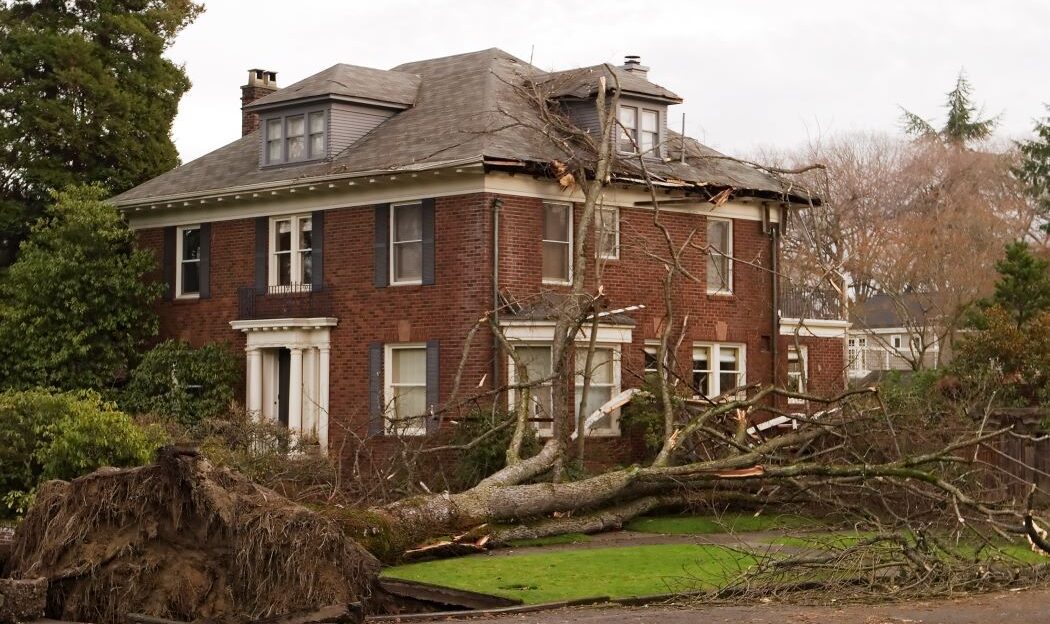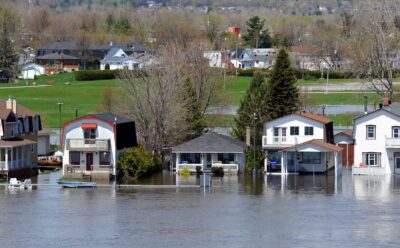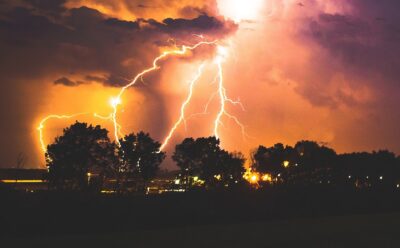Torrential rains, wild wind, fires: all are leading to increased home insurance claims — a time-consuming and often emotionally draining exercise for homeowners.
In fact, “Severe weather losses surpassed $8 billion in 2024, for the first time ever, and disrupted the lives and livelihoods of hundreds of thousands of Canadians,” according to the Insurance Bureau of Canada. Those staggering costs were from home, business and auto claims and shattered the previous record of $6 billion from 2016, when the Fort McMurray wildfires scorched northern Alberta.
But by preventing or minimizing damage to your home, including harm caused by climate change, you can avoid or reduce the misery of home insurance claims.
Here are our top tips for doing that.

Water & home insurance claims
Here are four ways to prevent water damage:
- Clean those gutters. Gutters plugged with leaves and other debris overflow in heavy rainstorms, potentially causing both cosmetic and structural damage to your home. Find out how to keep gutters flowing freely and check that drainpipes extend at least two metres away from the foundation.
- When is the last time you checked basement window wells for debris that can prevent water from draining and causing it to leak into your basement? Window well covers, available at building materials stores, can help ward off flooding. Along with checking window wells, make sure the grading of your property means water drains away from the foundation, not toward it.
- Backflow valves and sump pumps with backup battery power help prevent indoor flooding when water levels rise. Make sure you check your sump a couple of times a year and especially when extended wet weather is forecast.
- Fix small plumbing leaks, unclog slow-draining sinks, bathtubs and showers, and replace aging dish and clothes washer hoses before small problems become big ones. Water leak detectors and alarms, some starting at under $20 at building materials stores, can be a good investment.
MORE: Protecting your home against climate change

Wind & home insurance claims
The powerful derecho storm that devastated Ottawa in 2022 was the city’s biggest yet, according to Hydro Ottawa, leaving “a trail of destruction like nothing Ottawa has ever seen or experienced before.”
While trees are often defenceless in the face of strong winds, proactivity can minimize the cost and trauma of other damage to property and the ensuing home insurance claims:
- A semi-annual roof inspection, which you can do safely from the ground with binoculars, will alert you to damaged or missing shingles, faulty flashing and other problems that need to be fixed before a high wind makes the situation worse. Remember to check your roof carefully after your neighbourhood experiences high winds.
- Keep trees close to your home safe by ensuring they are trimmed and dead branches or limbs promptly removed.
- Do you have loose or damaged boards on fences, decks or other outdoor structures? They can come free and fly off in a windstorm, causing damage to your or others’ properties. Regular maintenance will reduce the likelihood of this sort of damage.
- Windows, entry doors and garage doors can be damaged by heavy winds and provide an entry point for rain or snow. Keep them in good repair and close and lock windows in a windstorm.
- If severe weather is on the way, secure or put away patio furniture, your barbecue, recycling containers and other outdoor items that could be damaged or even turned into flying missiles dangerous to people and property. Remember to move your car away from the path of potentially damaging trees.
MORE: Check storm damage to your home

Fire & home insurance claims
“Home fires are one of the most common emergencies experienced by Canadians,” says the Canadian Red Cross. “In as little as 30 seconds, a small flame can grow into a dangerous fire. Within minutes, an entire home can be filled with black smoke and large flames.”
Here’s what you need to know about preventing fires:
- Cooking is the leading cause of home fires and home-fire injuries, according to Canadian Firefighter. That’s not surprising, since cooking oil typically used in frying can ignite into an uncontrollable fire within seconds. The takeaway? Never leave stovetop cooking unattended, even for “just a second,” use a CSA- or ULC-certified deep fryer and turn it off as soon as you’ve finished cooking.
- Summertime is grilling time, but barbecues need to be used and maintained properly to avoid a potentially deadly fire and home insurance claims. Grill only in a well-ventilated space, always lift the lid before starting and follow the manufacturer’s instructions for lighting and turning it off. Clean all burner pipes annually and check for leaks when you change the tank by wetting all connections with water and a bit of dish detergent — if bubbles appear, you have a leak. Remember to store propane tanks outdoors.
- Are you a smoker? Don’t do it on upholstered furniture or in bed. And extinguish the cigarette fully by wetting it after you’ve finished. Never extinguish it in a flowerpot or planter, which may contain mulch or other flammable material.
- Extension cords can be a fire hazard if you overload them, run them under a rug or allow them to become frayed. If you find you’re regularly using an extension cord in one area of your home, consider having an extra electrical outlet installed.
- Candles are great for an intimate dinner or bedroom romance, but they are a fire hazard. Don’t put them near draperies or other flammable materials and never leave them unattended.
MORE: Simple ways to avoid a fire in your home
Sources for this article: Insurance Bureau of Canada, Desjardins Insurance, others.



